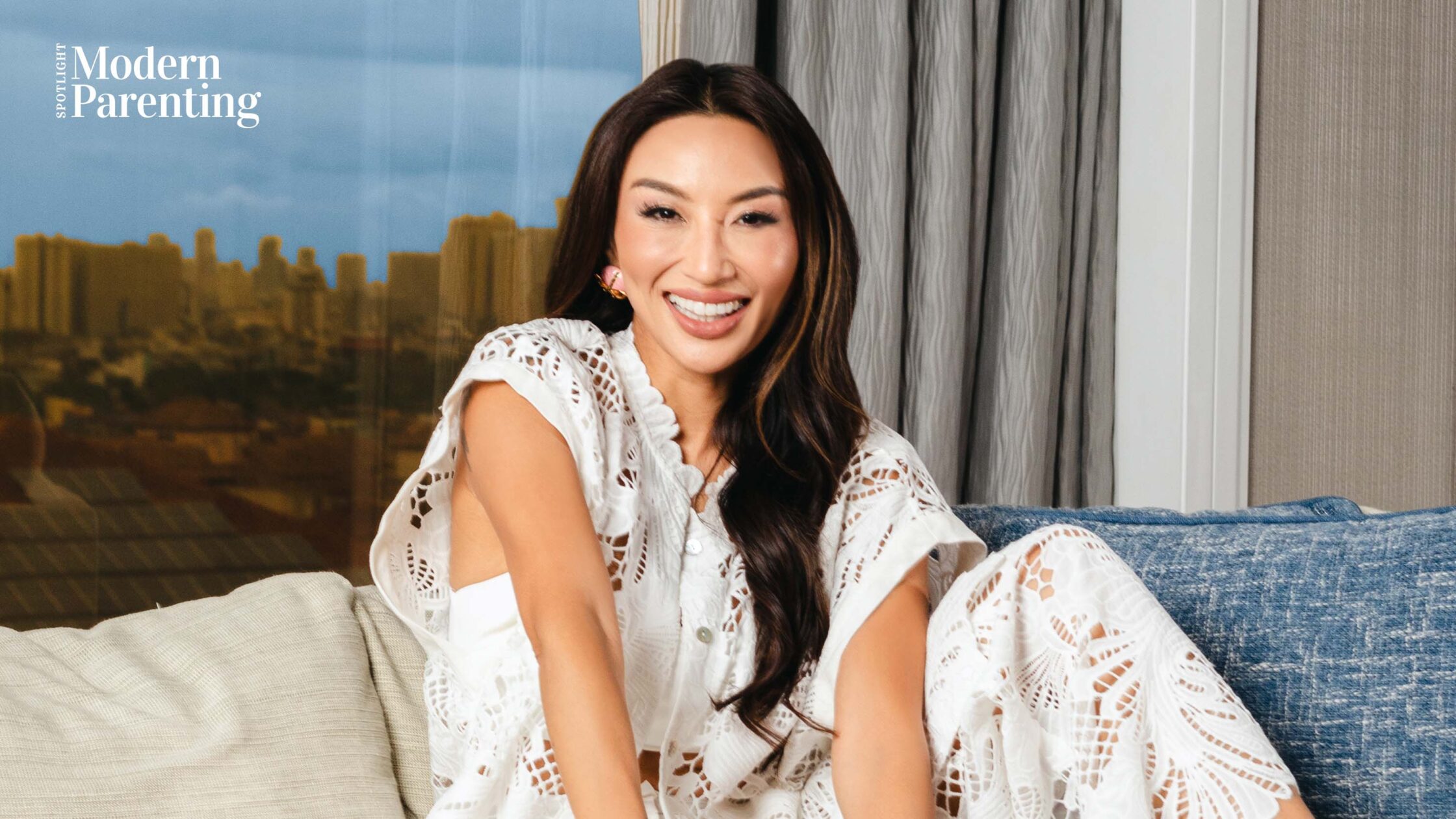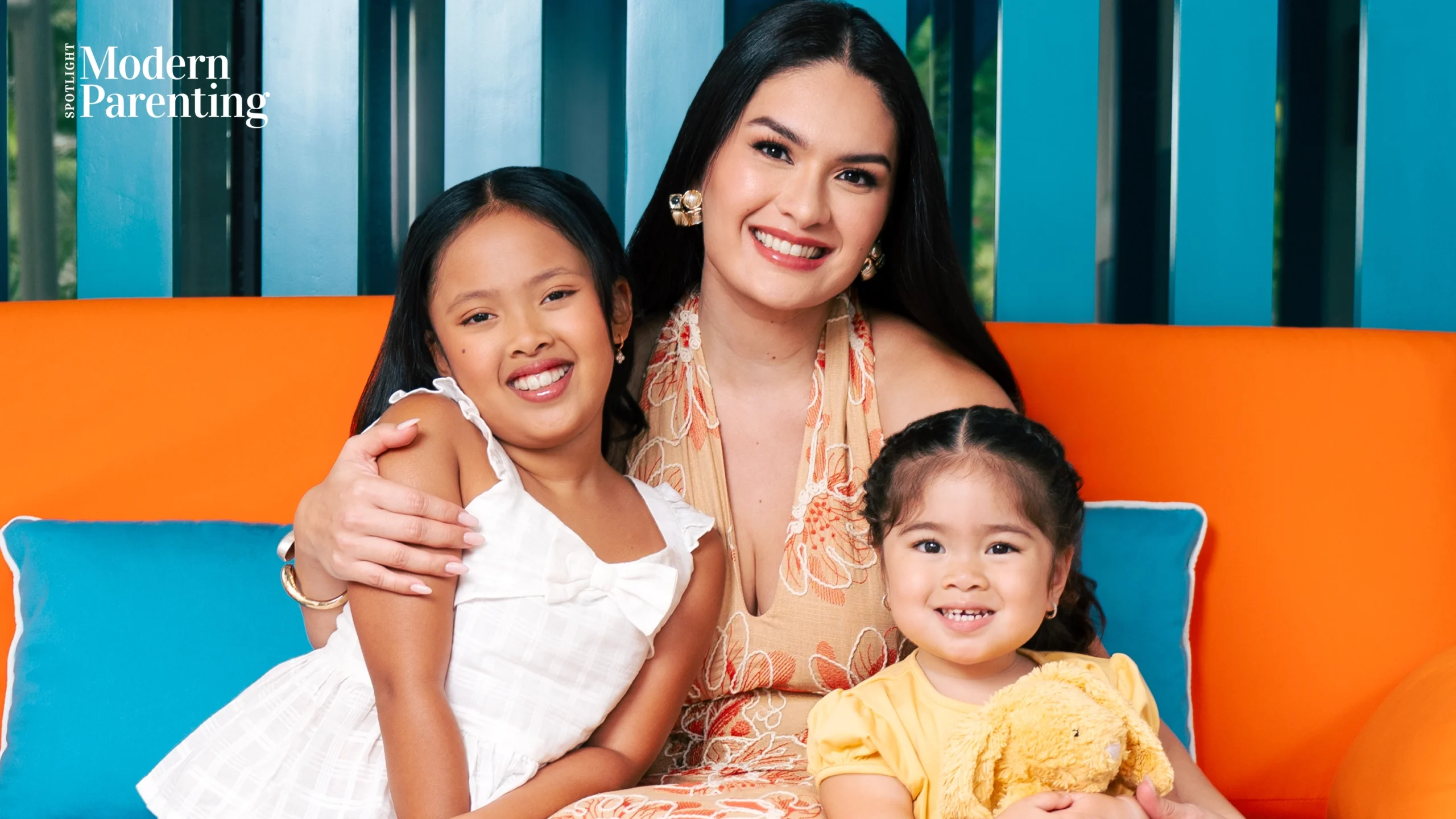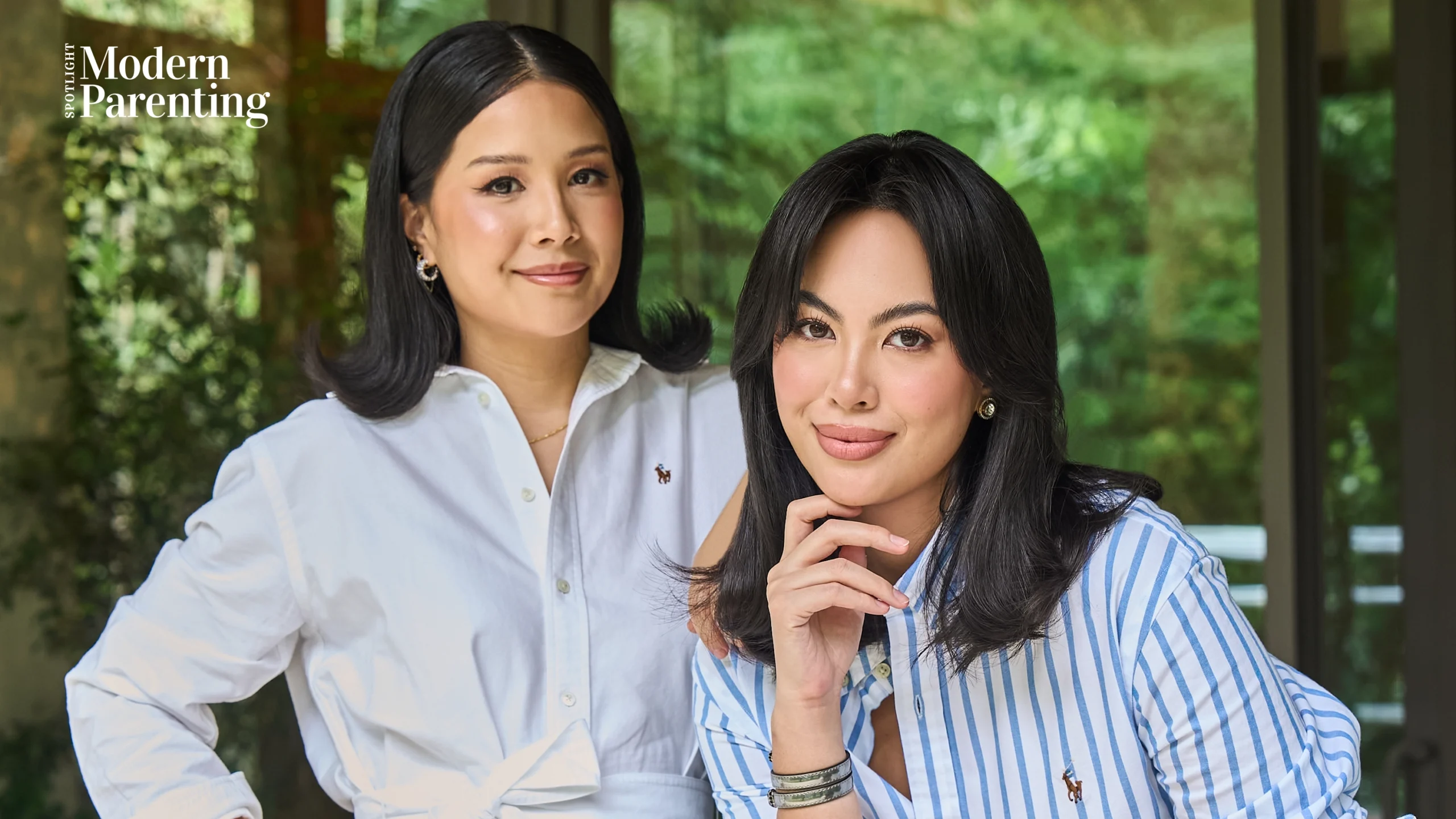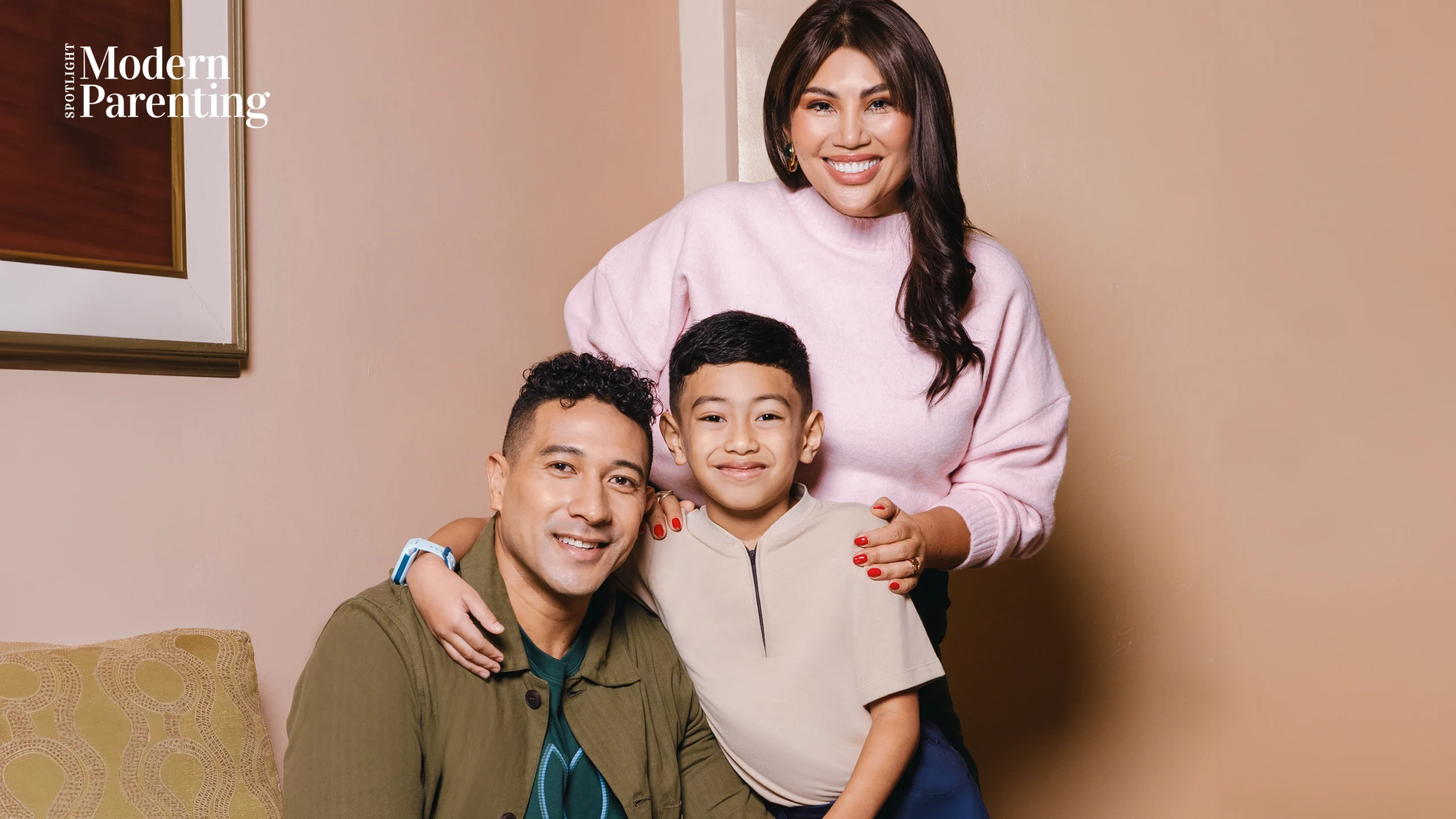Jeannie Mai: Celebrating Her Culture and Raising Her Biracial Daughter Monaco
Multi-hyphenate television personality and mom Jeannie Mai gets candid about challenging racial stereotypes while raising her daughter to embrace her identity
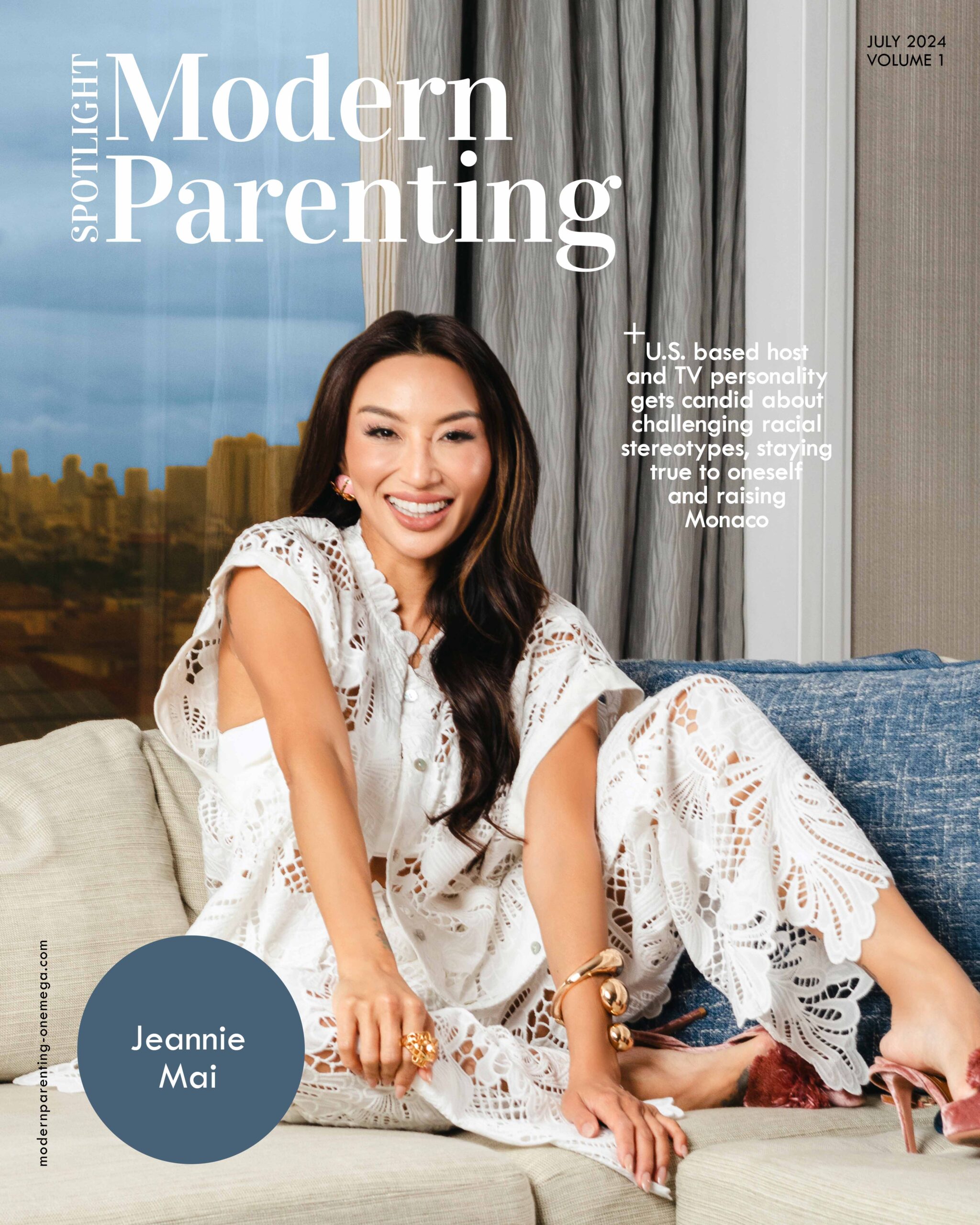
Having been born and raised in California by a Chinese Vietnamese father and a Vietnamese mother, Jeannie Mai knows firsthand about what it’s like to navigate the complexities of a multicultural upbringing. But more than embracing the heritage and traditions of both parents, she also had to acclimate to living in a Western country as the daughter of immigrants.
And she has done so successfully. Having made a name for herself, Jeannie is known for her appearances on the big screen—from co-hosting eight seasons of the talk show called The Real to serving as a fashion correspondent on the channel Entertainment Tonight, and competing in Dancing With the Stars last 2020. She is, however, notably known as a host for shows like America’s Test Kitchen: The Next Generation, along with events like the American Music Awards and most recently, the Miss Universe Philippines pageant.
To date, the television darling actively shares her stories, advocacies, and day-to-day happenings on her channel Hello Hunnay with Jeannie Mai.
Beyond these accolades, however, Jeannie considers motherhood as her crowning glory. In 2022, she had a daughter, whom she fondly named Monaco. As a first-time mom, motherhood may be new territory for her, but if there’s one thing she’s known all her life, it’s navigating the nuances of being biracial.
And these learnings are something she hopes to impart to her daughter.
The best of both worlds
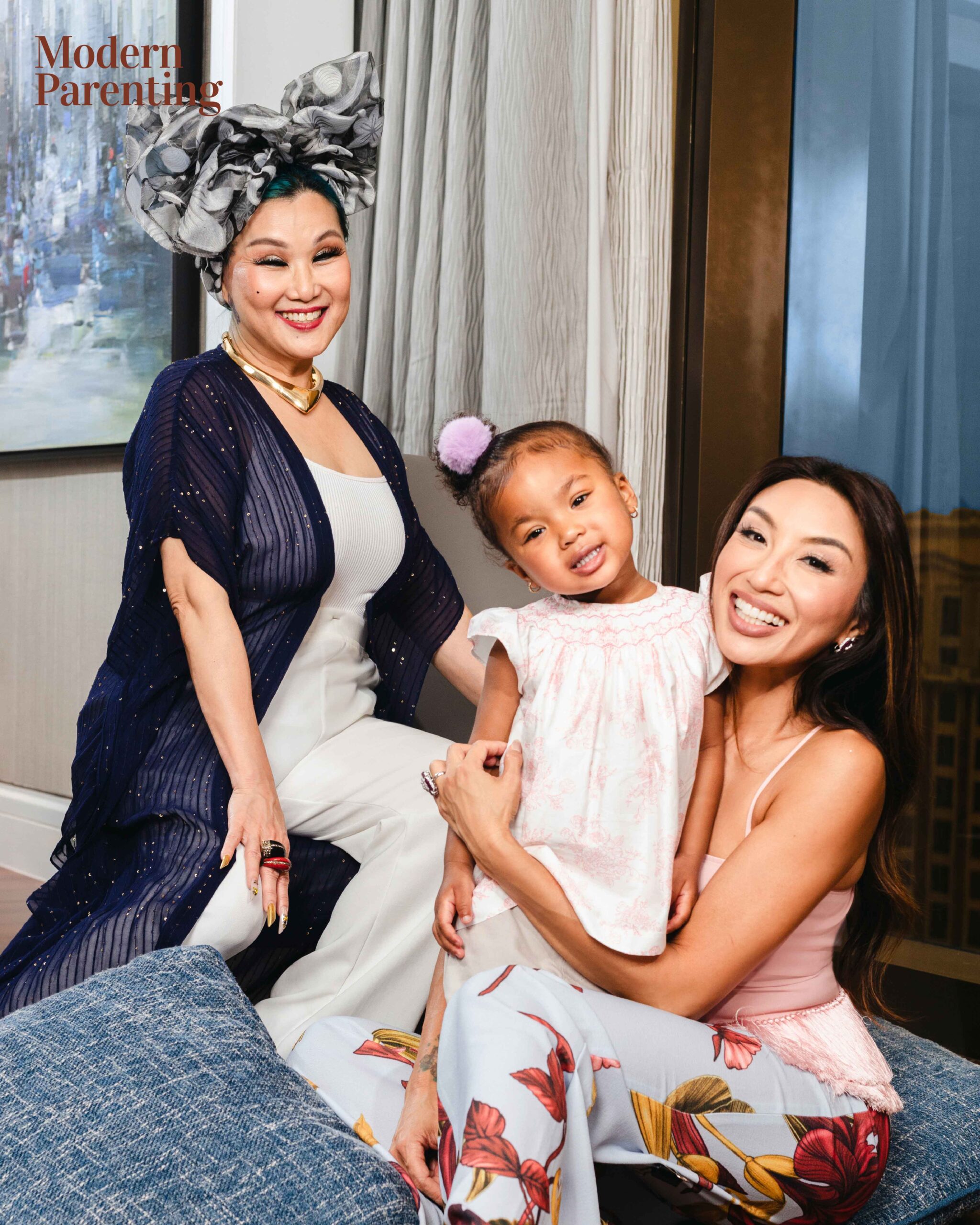
In an exclusive interview with Modern Parenting during her trip to the Philippines, Jeannie opens up about what it’s like growing up as an Asian-American. “When you ask that question, it brings back so many vivid memories because everything helped every other thing happen,” Jeannie begins. “So I grew up in a three-bedroom home in San Jose, California with 15 family members, and that is because my mom and dad sponsored 10 of my family members over from Vietnam.”
“We had a very full house and it was so much fun,” she adds. “It was a celebration of food, language, karaoke, gambling, and the best stories. We lived in a very Black and Latin neighborhood that still couldn’t understand why we had about 10,000 shoes on the front porch.”
While her childhood was vibrant and filled with fond memories, Jeannie admits that most of it was spent understanding what her place was in the equation. “We’re Vietnamese, but we left Vietnam. I was born in the U.S., so I didn’t need to go back to Vietnam. As a kid, I was still figuring out what was ‘home’ for me.”
Thankfully, her household was, in her words, “a very safe place for me to feel like I belonged.” Her hometown, San Jose, was also described to be “a melting pot back in the 80s with a heavy mix of Asian, Black, Latino, Muslim, and Indian cultures,” which made people very open to learning about Vietnamese food and culture.
All this gave Jeannie a sense of purpose. She loved welcoming people into her home. And from there, it opened up avenues for her career. “I naturally started to figure out how to bring my life of hosting from my household into Hollywood, so I moved to Hollywood when I was about 24 years old. And that’s when everything really began.”
Her crowning moment
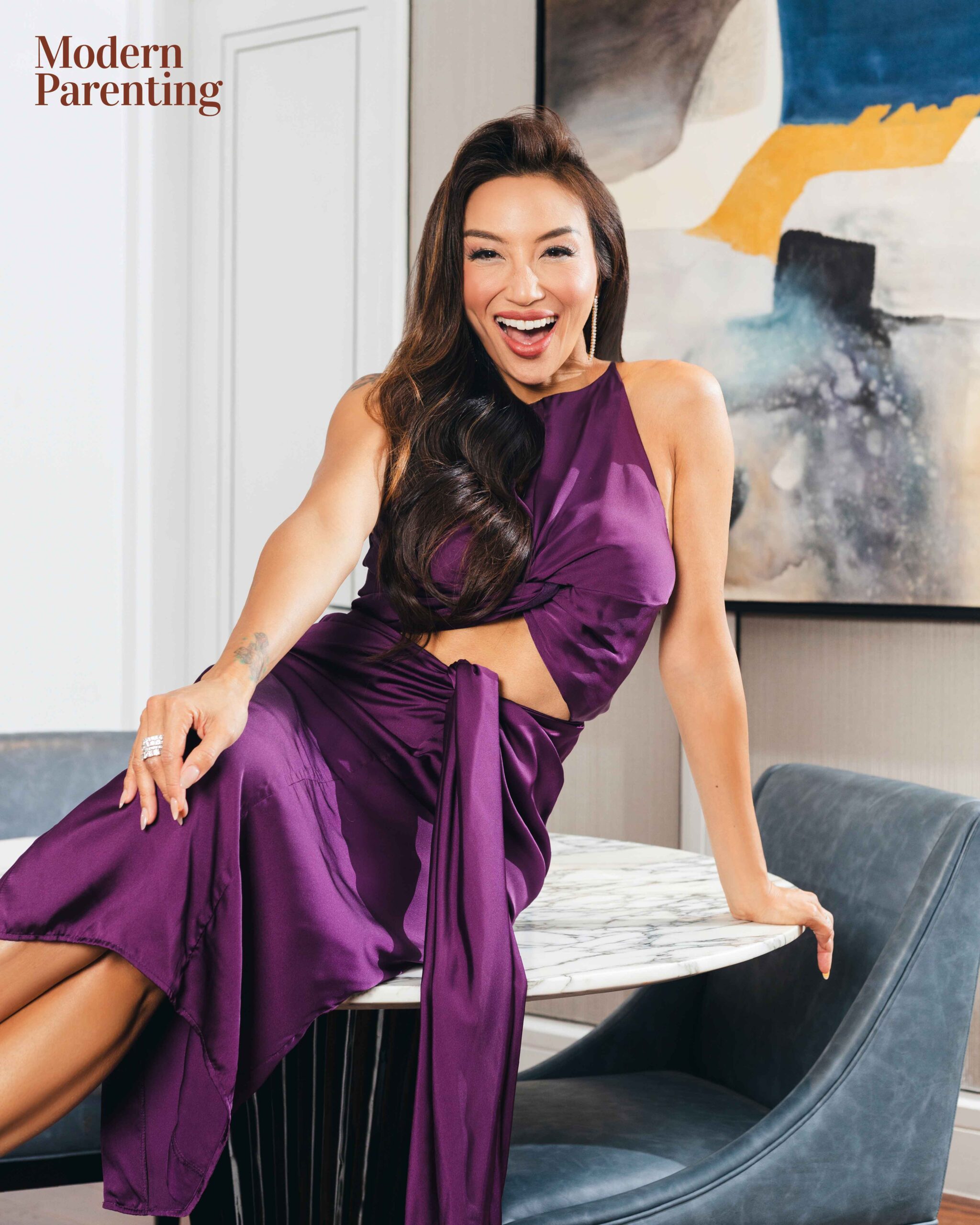
Hosting for a travel and culture show has become the starting point of Jeannie’s career, but the road to get there was arduous, given that the producers initially wanted a Caucasian talent. “I went to the audition and there were beautiful models, like maybe about 30 of them. And I was the only Asian woman in the room. I was the only person of color there,” she explains.
But even so, she proved herself and landed the role. “I got the call for that show later on,” she says proudly. “I’m still friends with that show’s executive producer. Back then, he said, ‘I’ve never seen so much pride in a woman of color. So I appreciate you for coming to audition even though we had no intention of asking you to come.’ That was when I realized that when it comes to being a woman of color, you have to make your own chances happen.”
“One of the most powerful ways to [make a name for yourself] is actually not to push, but to just exist. And exist loudly,” Jeannie declares. “I don’t have to walk around and tell everybody that I’m Asian. I just am—from the way I look and exist. And I don’t shy away from anything about that.”
Why? “Because those qualities make us unique and it makes us stand out. So wherever I am, I just exist and wherever my friends are, whether they’re Filipino or Indian or Taiwanese, I want them to just be that. So I create space for them to be who they are. And they do that for me. And that is exactly how we move the needle.”
Raising a biracial daughter
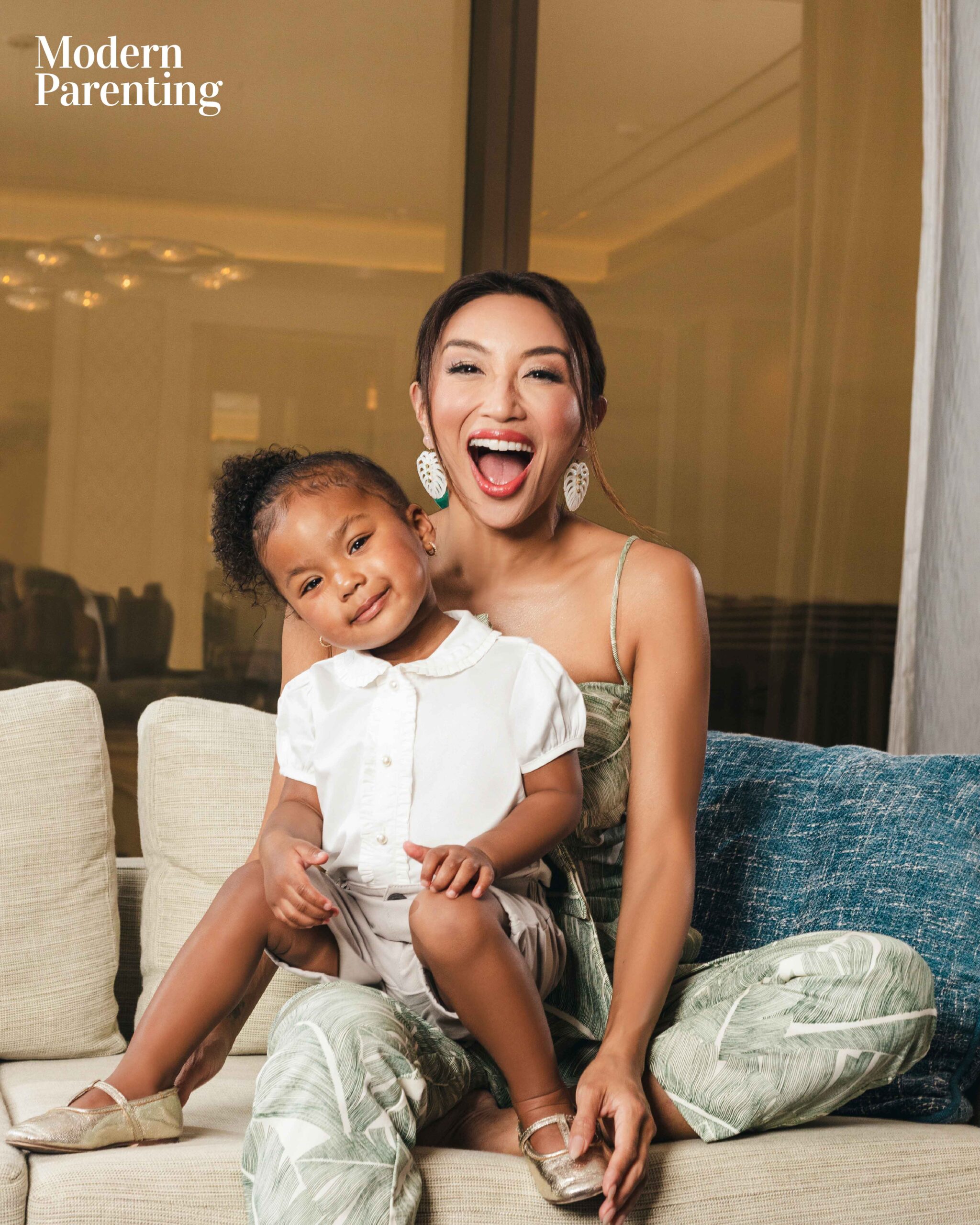
Now a mom herself, Jeannie aims to impart that very same mindset to her daughter, Monaco.
As an earlier generation of immigrants herself, Jeannie has witnessed how the existence of culture can become forgotten over time. For example, younger generations of immigrant families do not know how to speak their mother tongue. “It’s gone. It’s crazy. And I think it’s our secret power to still know the language our parents speak. I love how Monaco is going to carry that tradition on no matter what. She speaks both Vietnamese and English and it’s so heartwarming for my entire family to see,” she says proudly.
But for Monaco to fully embrace her identity as a half Black and half Vietnamese young girl, Jeannie believes in fully immersing her in both sides of her culture—equally. “I don’t want one side to get any less exposure than the other,” she says simply.
“When it comes to her school, her extracurricular activities, and even her best friends, it’s very important for them to be of mixed race. I would love for her to meet other Vietnamese and Black friends, so she can see that we’re not the only type of Vietnamese that exists,” she opines. “There are other types of Vietnamese and how they live their lives is very different from us. Same goes for Black people. There are other sides of Black people who can tell their story differently. And she needs to see all sides of that as much as possible.”
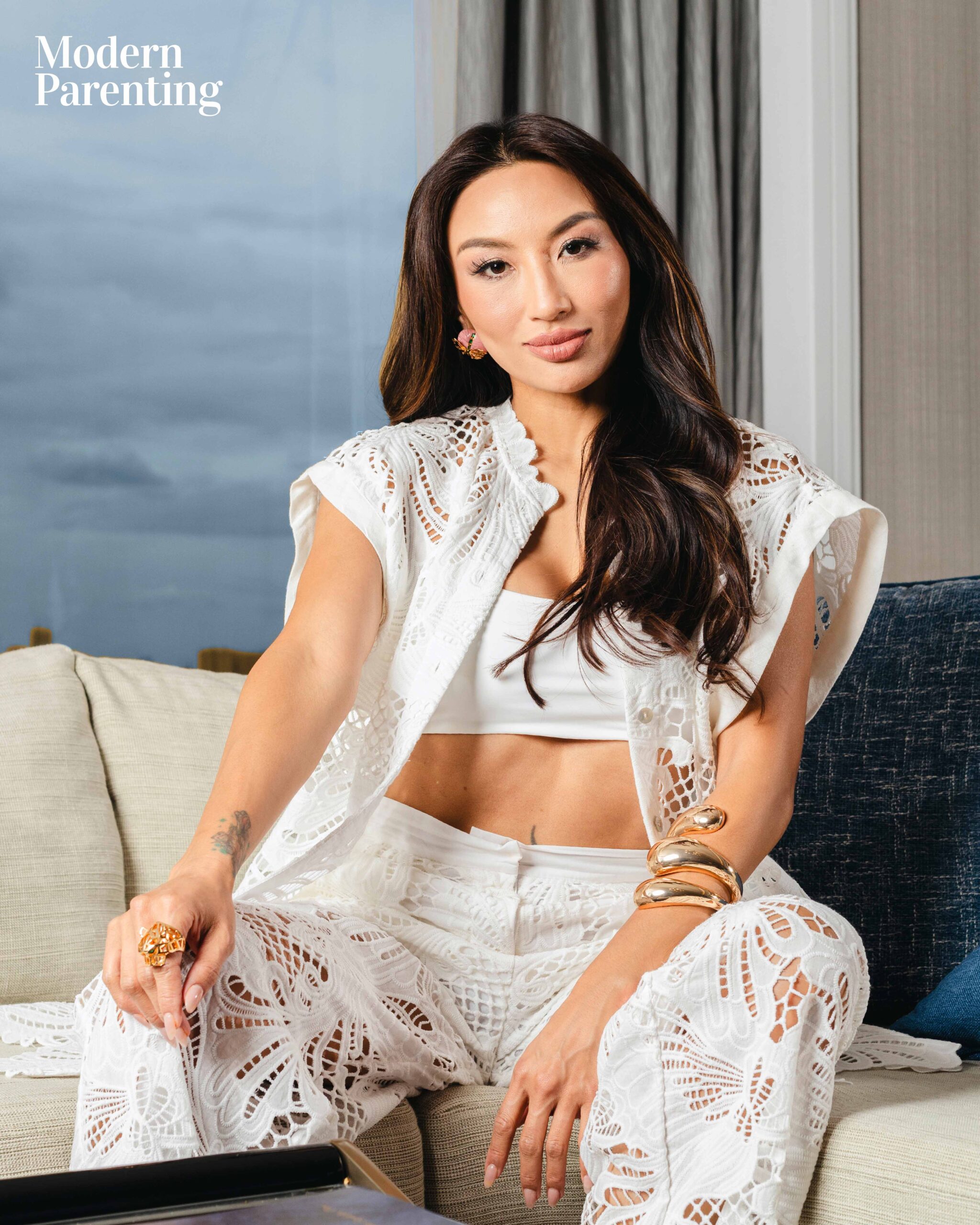
For her Vietnamese roots, however, Jeannie has shown her most of what she could. “She sees her grandfather, grandmother, uncles, and cousins regularly. And I brought her to Vietnam already just a couple months ago. That was an eye opening experience for her because she needed to see how Vietnamese people actually live in Vietnam. They’re very different from Vietnamese-American people.”
But more than showing, it’s also about experiencing and feeling her culture firsthand—about meeting other children, talking with them, and interacting with them.
“That’s really all it is,” Jeannie says simply. “When it comes to this world…if you can just listen to people and figure out a way to understand their story, then you will always have a place for them in your heart. I think as long as she understands her own story and makes room for others, she’ll understand the world.”
Unlearning and relearning
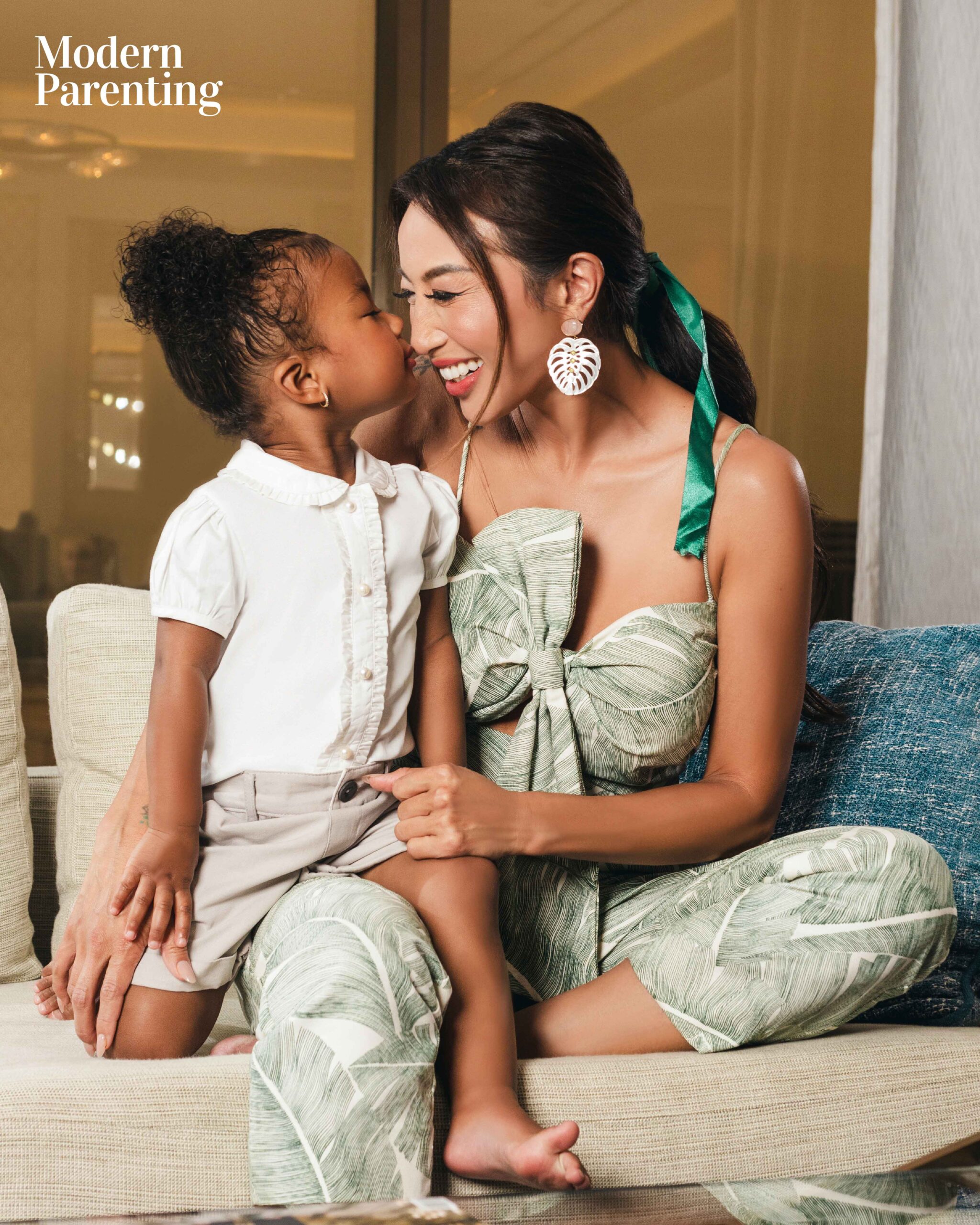
Now a mother herself, Jeannie sees a lot of herself in Monaco, as the two share the same zest, excitement, and energy for life. But the TV personality admits that raising Monaco meant revisiting her own childhood and confronting the challenges she faced growing up.
“Monaco is even more supported and has an incredible life built for her,” she admits. “Because I’m so aware of what was broken in my childhood. I’m aware of what I didn’t get to learn or what was taken from me, so I want to make sure that with Monaco, I support her and encourage her—while teaching my mom, dad, uncles, and anybody around her to do the same.”
“I have to say I’m very thankful that my mom is actually really good with that now. I think 10 or maybe 20 years ago, mom wouldn’t have listened because she’s very defiant and likes things her way,” Jeannie says with a laugh. “But now, my mom watches me as a mother. And she understands and trusts me when I say that this is the way that we should raise Monaco because the old way I was raised didn’t work so well.”
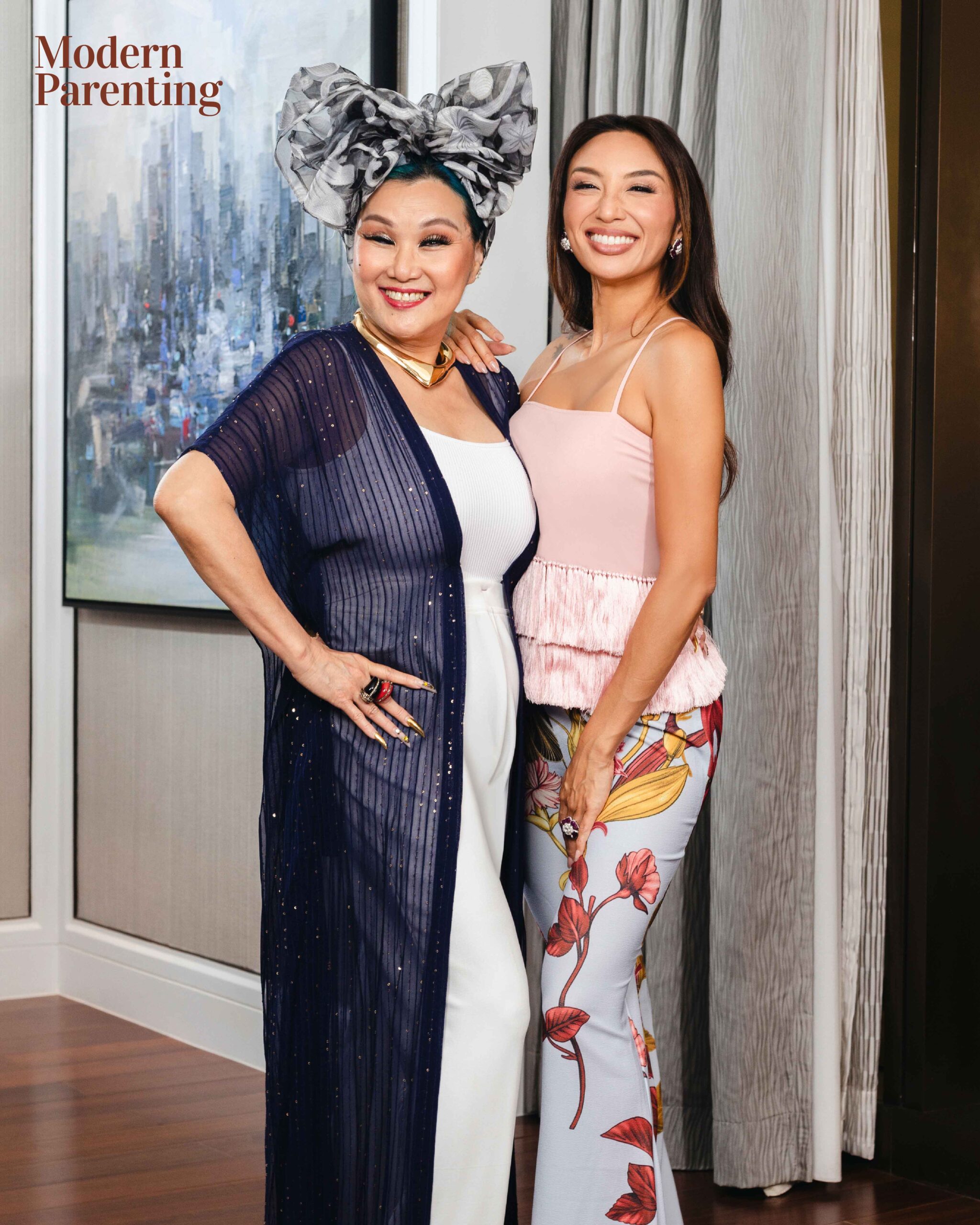
But saying this didn’t mean that Jeannie discredited her mom’s parenting style. The first-time mom adds that, “It just means that there are newer methods. We understand how to do things differently.”
In fact, Jeannie credits her mom’s open-mindedness as the reason why the two have such a unique and solid bond with one another. “My mom always let me be. She gave me space and room to grow and exist. And I believe that’s why I was such a confident child. She asks such good questions, even though they’re hard. Now, watching me be a mom, I know she thinks about how she could have handled things differently as a parent. And to be honest, you can only do what you think is best for your kids.”
Life lessons for Monaco
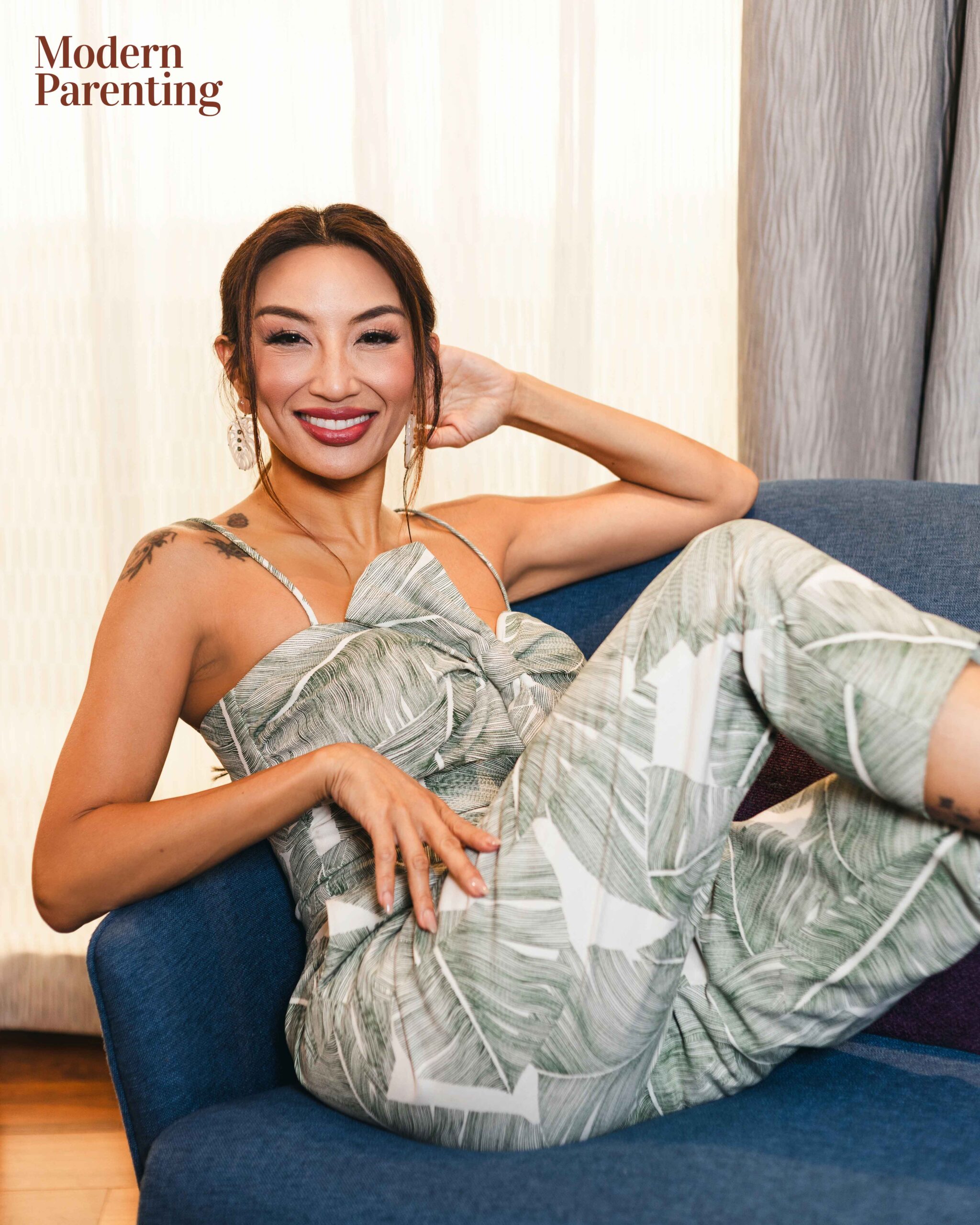
Although Jeannie stresses on the importance of embracing one’s culture, she has no qualms about challenging the aspects in it that don’t work. This is why one important lesson she wants to teach Monaco includes being able to stand up for herself.
“When teaching little girls today about power, especially when we come from a place where it’s usually forced, it’s hard, especially in a culture where women are taught to be agreeable and to be people pleasers,” she expresses.
“Women are taught to serve our elders, to serve men—our fathers, our husbands. We don’t ever get taught to love ourselves first. Think about it. You’re never taught to self-care. It’s something we learned as adults. You’re never taught to spend the money on yourself. You’re never taught to not apologize, even when you’re right. It’s always ‘apologize, apologize, apologize.’ These are the things I want to teach, not just to Monaco, but also to myself.”
Looking back at her past experiences, Jeannie recalls a time when she was getting bullied in seventh grade. With 20 other kids at her yard, chanting her name to intimidate her, she was undoubtedly scared. But it was her mother who taught her to face them head-on.
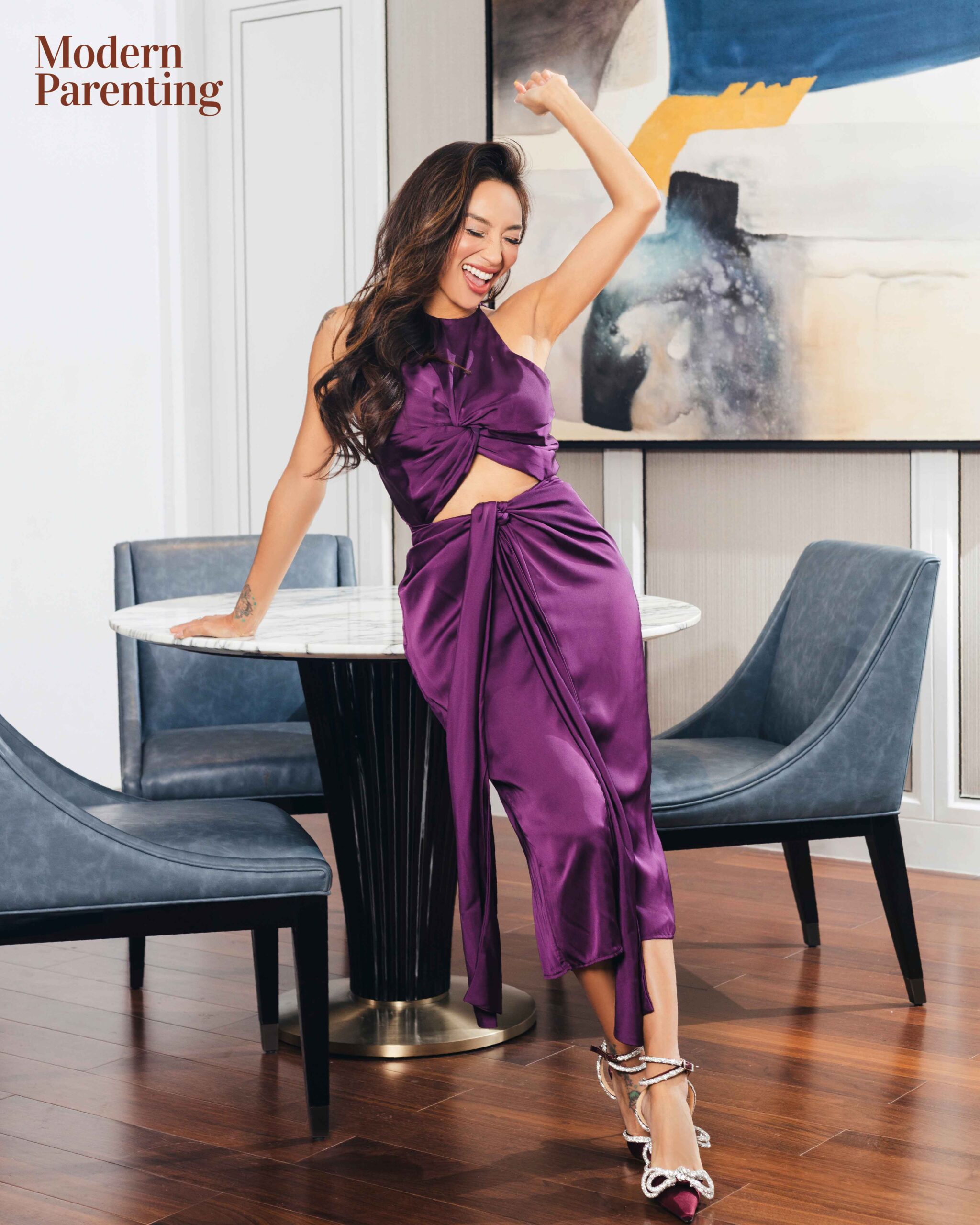
“She came here from Vietnam to look for safety and freedom. I came into the world that she left her home country for. That took a lot of courage,” she says. “So by the end of that day, my mom taught me how to stand up for myself and I took care of that bully. It was the best experience I’ve ever had because I needed to see myself do it. And all it took was for my mom to remind me that I could.”
“There have been times in my life where I didn’t stand up for myself. I didn’t speak up for myself. And I ended up paying for it for the rest of my life. I never want my daughter to experience that,” she adds with determination. “With Monaco, even before she gets confronted by anybody, I am already teaching her how to stand up for herself.”
This is why early on, Jeannie has given Monaco the power of choice—the power to set boundaries, to say no, and to protect herself. “At the end of the day, we’re going to have people testing our boundaries everywhere in life, whether in relationships, work, or even friendships.”
“Our job as parents now as we get more information is to reevaluate our ways,” she ends. “Take what has worked for us from our own life experiences, then explain to our children with love and with care what we feel works for us as parents. And everything will fall into place.”
Words DIANE NICOLE GO
Photography EXCEL PANLAQUE OF KLIQ, INC.
Makeup TWINKLE BERNARDO
Hair ARTHUR TOLENTINO
Stylist ROSHNI MIRPURI and SIYA DARYANI of THE CLOSET CULTURE
Shoot Coordination ANTHONY MENDOZA
Art Director DENIELLE CARAG
Sittings Editor MARGA MEDRANO TUPAZ
Shot at Location HOTEL OKURA MANILA
More about parents raising their biracial children?
The Real-Life Fairy Godmother: Inday Shopper
Switz It Up With “Glamma” Pamela Gotangco Hupp
Bridging the Gap: How Parents Can Empower Their Biracial Kids
